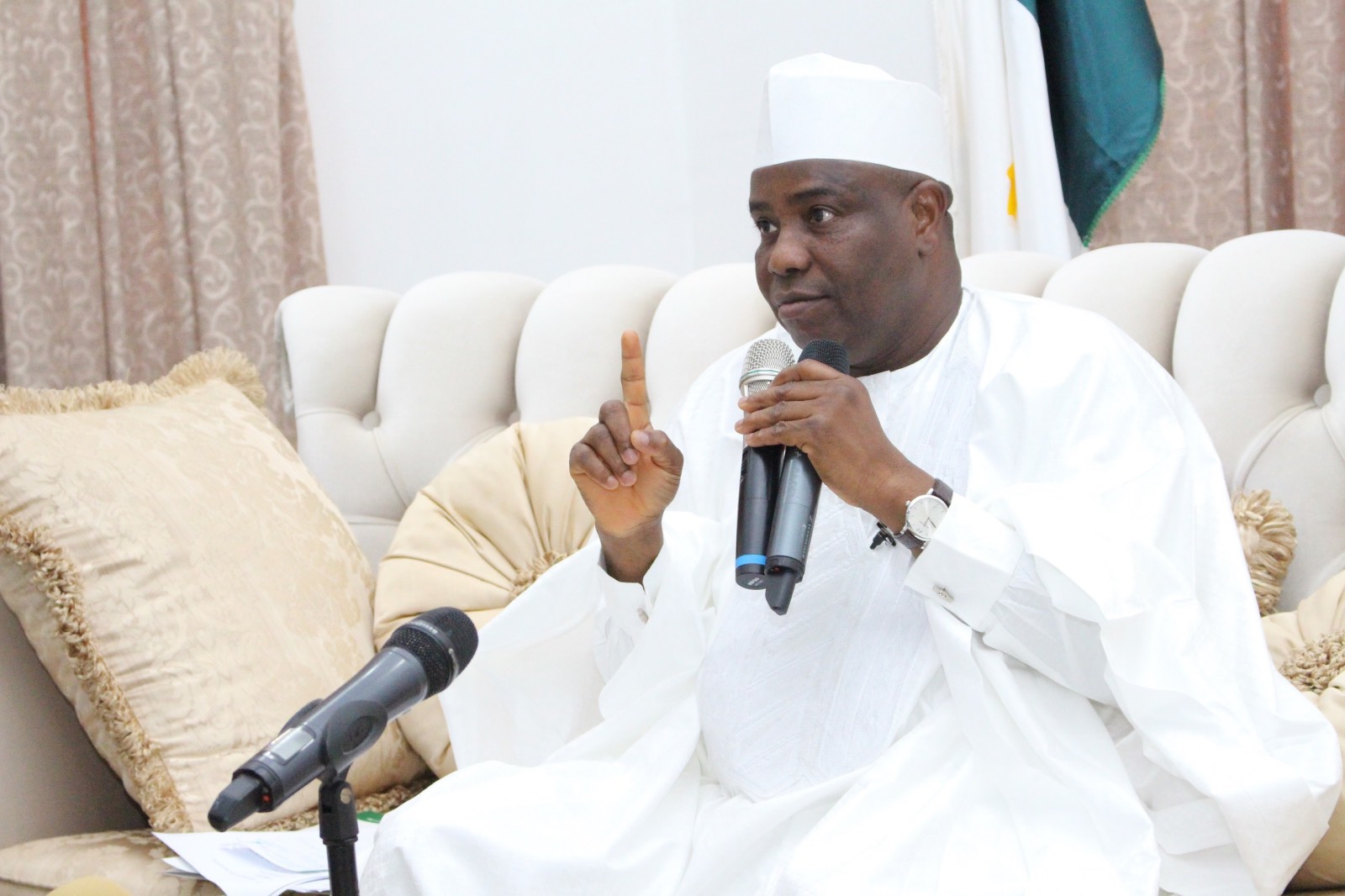Sokoto State Government has sent over 200,000 out-of-school children back to school under its non-formal learning system within one year.
Altini Kajiji, the state chairman of the Universal Basic Education Board, stated this while speaking with journalists in his office on Wednesday, January 12, 2023.
Kajiji said since his assumption of office as the chairman of the board in February 2022, the board under his watch has provided sporting materials worth over N30 million.
He further explained that apart from establishment of 41,000 non-former learning centres under the project, over 1,700 volunteer graduates were employed in the process.
“We have also constructed and equipped 76 post literacy skill acquisition centres across the state, in addition to construction and renovation of schools,” he said.
Kajiji further explained the board also constructed boreholes, shades, and toilet facilities in selected centres in the state.
He further explained has provided about 39,941 double-seater furniture to schools across the state.
The chairman, in his briefing, confirmed that his administration was working hard to ensure teachers welfare, especially those in the primary schools.
He said the improved welfare when implemented would attract more teachers especially in rural area across the state.
The education boss, however, calls on teachers across the state, especially those under the board, to pay back with improved service delivery saying there would be improved monitoring in schools to ensure quality of education.
10 Million Girls Out Of School In Nigeria – UNICEF
The United Nations Children Fund, UNICEF, has raised alarm about over 10 million girl children being out of school in Nigeria.
Chief of UNICEF Field Office in Kano, Rahama Farah, raised the alarm at a Media Dialogue on Girls’ Education under the Girls’ Education Project, GEP, 3, funded by the Foreign, Commonwealth and Development Office, FCDO, and implemented by UNICEF.
Farah said the 10 million represents 60 percent of the 18.5 million total number of out-of-school children in the country, claiming that the majority of the out-of-school children were from northern Nigeria.
According to him, “Currently in Nigeria there are 18.5 million out of school children, 60 percent of these out of school children are girls – that is over 10 million girls are out of school.
“Most importantly, you will need to know that the majority of these out-of-school children are actually from northern Nigeria.
“This situation heightens the gender inequity, where only one in four girls from poor, rural families complete Junior Secondary school education. The situation with girls’ education in Nigeria has been further affected by attacks on schools. These attacks have created an insecure learning environment, discouraged parents and caregivers from sending their children to schools, while at the same time the students themselves become fearful of going to school. These attacks have particularly and specifically targeted girls.”
Farah said the GEP 3 intervention was already yielding results as no fewer than 1.4million girls now had access to education in northern Nigeria, saying “These interventions are encouraging girls to attend school. But a lot still needs to be done to ensure that every girl in Nigeria is enrolled, attends school, and completes her education.
“With more of similar support, and working together with government and development partners, parents, communities, traditional and religious leaders, we can achieve more by enrolling more girls in schools, and ensuring they complete their full education. “To achieve this objective, we need the support of every ally and stakeholder, especially the media. This Media Dialogue is therefore very timely and critical in the achievement of these objectives.
“I urge the media to advocate for increased funding and allocation of adequate public resources to the education sector, especially adequate allocation and the release of what has been appropriated. There are a number of barriers that affect girls’ education. The media must also be at the forefront of advocating for the action directed at removing these barriers that hinder girls’ education such as child marriage.”
On her part, Education Manager, UNICEF Field Office in Kano, Michael Banda, said the children were out of school as a result of early marriage and transition among others because there was no proper implementation of policies to support educational development.
In her paper presentation titled “Why Girls’ education is important”, the Education Specialist, UNICEF Country Office in Abuja, Azuka Menkiti said the girl child is faced with daunting challenges and barriers.
She however stressed the need to educate the girl child saying education for the girl child goes beyond enrolling them into schools as the girl education is posited as a vaccine to address poverty rate, over population and health indices such as malnutrition, maternal mortality among others.
Earlier, the Deputy Director Planning, Kano State Qur’anic and Islamiyya Schools Management Board, KSQISMB, Kamaludeen Abdulhadi said the media dialogue was to assess or monitor activities carried out by the GEP 3 since 2018 till date in the state.
The GEP 3 project is implemented in five states of Kano, Katsina, Sokoto, Bauchi, and Zamfara.







